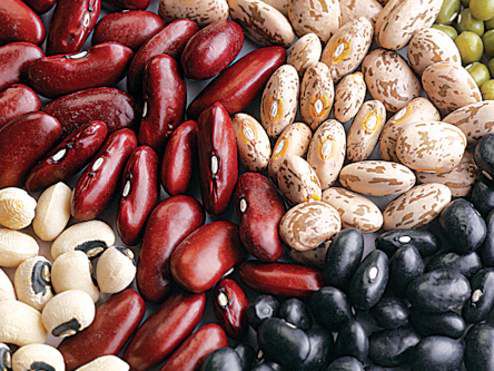Vegan diet can lower cholesterol
Published 5:00 am Thursday, October 13, 2011

- Beans
A study published recently in the Journal of the American Medical Association reaffirmed that it’s possible to reduce low-density lipoprotein (LDL) cholesterol — a factor in coronary heart disease — through diet. The study found that eating a combination of plant-based foods with known cholesterol-lowering properties, such as soy protein, oatmeal and nuts, lowered so-called “bad” cholesterol more successfully than a healthy, low-fat diet that included dairy products.
Participants who consumed the plant-based diet (including oats, barley, soy milk, tofu, nuts, peas, beans and lentils) for six months saw a 13 percent reduction in LDL cholesterol.
Trending
Those who consumed a more conventional, low-saturated fat diet (low-fat dairy and high-fiber, whole grains with fruit and vegetables) saw a 3 percent reduction in LDL cholesterol.
The plant-based diet was a vegan diet that prescribed soy beverages, whereas the control group drank milk. The vegan diet included soy-meat sandwiches as an alternative to the grilled fat-free cheese sandwiches for the control group; the vegan diet included a tofu-eggplant vegetable casserole rather than the egg omelet in the control group diet.
Dietary experts have been moving away from the thought that all fats are bad.
Other studies have shown that eating five weekly servings of nuts, which tend to be high in fat, have been associated with a 40 to 60 percent reduction in coronary heart disease.
The plant-based foods used in the study have been as effective in reducing LDL cholesterol as “first-generation” statins, or cholesterol-lowering drugs, according to the study.
“It’s exciting to think that heart disease is potentially preventable through lifestyle and diet modification,” said Dr. Rick Koch, a non-invasive cardiologist at Bend Memorial Clinic who was not involved with the study. He believes with some effort, a person could avoid some cholesterol medications by adhering to a plant-based diet.
Trending
Koch said this study — what he described as a legitimate, randomized, controlled trial — adds to a growing awareness that people have considerable control in preventing some diseases. It used to be thought that heart disease was sort of predetermined by genetics, he said. There is a genetic component, he said, “but perhaps with these revelations coming forth we can have more significant dietary impact than we ever thought. … Maybe through getting your diet together, we can reduce cholesterol by 40 percent.”
The new study falls in line with new books on the market (such as “Forks Over Knives,” and “The China Study,”) which, he said, claim that a plant-based diet — a vegan diet — can prevent coronary atherosclerosis.
Atherosclerosis is when plaque accumulates in the arteries, the blood vessels that carry oxygen-rich blood from the heart. The plaque can be made of fat, cholesterol, calcium, and other substances from the blood, according to the National Heart Lung and Blood Institute of the National Institutes of Health. Over time, plaque hardens and narrows the arteries, limiting the flow of oxygen-rich blood and leading to serious problems, including heart attack, stroke and death.
Koch said 50 percent of American men have some signs of heart disease by age 55, Koch said. Heart disease is the No. 1 killer of men and women in this country. Koch said the Western diet plays a role.
Koch, who personally eats a vegetarian diet with fish, said he’s considering a vegan diet. “I feel like if I’m going to recommend this to patients with heart disease, I need to see, how hard is it?”
He feeds his young sons meat and dairy, however. Atherosclerosis can begin to develop in a man’s late teens and 20s, and women are about 10 years behind that, he said. He recommends most people get screened in their 20s to assess their risk of heart disease.
“I think there’s a food revolution coming,” Koch said. “I think it’s already started.”








